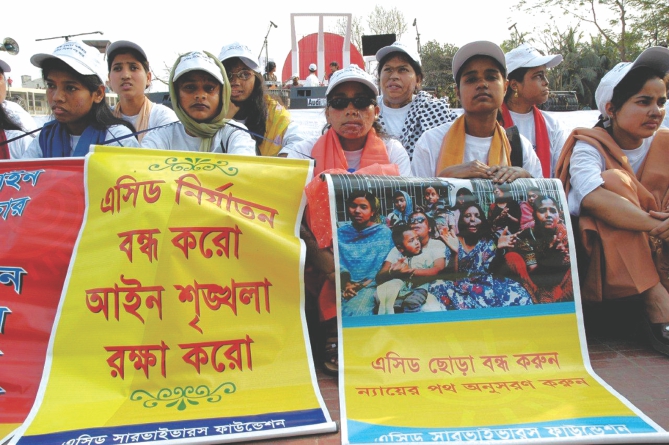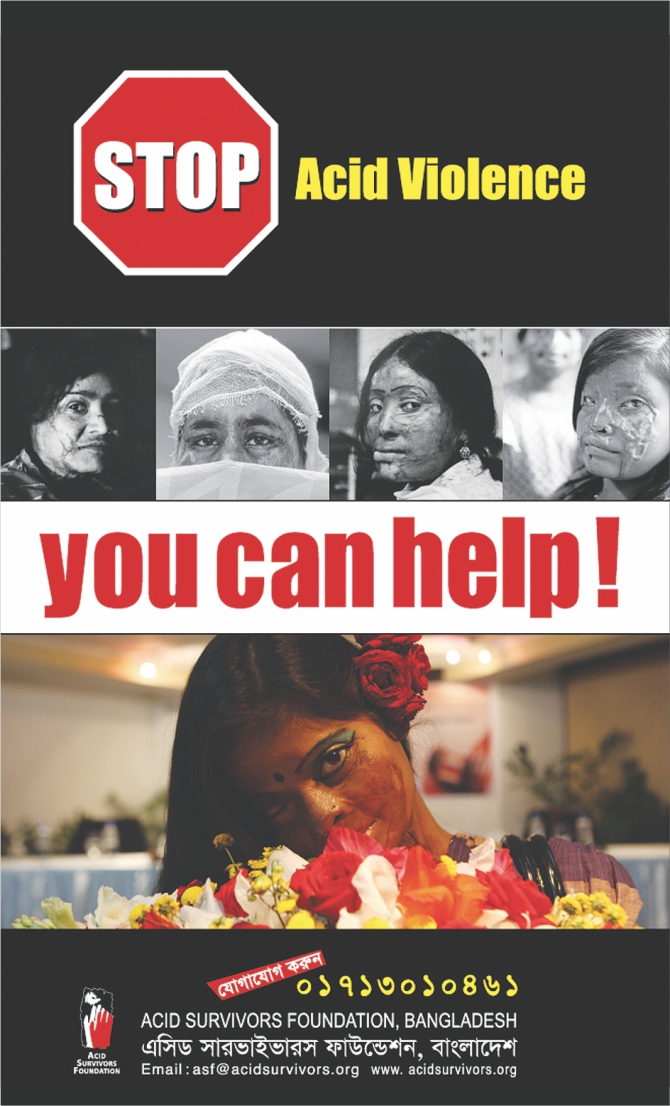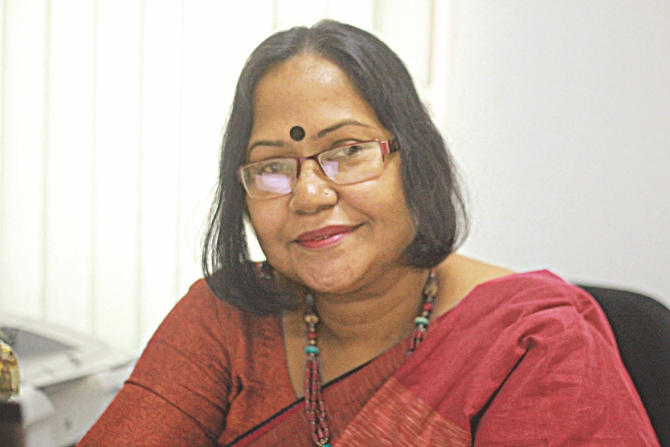Awe-inspiring strength

The Acid Survivor's Foundation (ASF) was established in May of 1999 by Dr John Morrison, to address the growing number of acid attacks in Bangladesh. “During that time, there were about 500 reported attacks a year, and there was no organisation to specifically address this increasingly rampant crime,” says Selina Ahmed, Executive Director of ASF. “The organisation was founded by Dr Morrison and a group comprising of activists, members of our burn society and plastic surgeons. The vision is to eliminate acid violence and rehabilitate the victims so they can live a dignified life,” she says.
Based on their experience working with survivors, this group came to the conclusion that this issue needed to be addressed in a comprehensive way. “We realised we have to focus on not just the biological aspect of it, but the psychological trauma and the social stigma associated with the victims as well,” says Selina, “In order to do this we use a bio-psychosocial model, which is a multidisciplinary approach.”

To address the biological aspect, ASF has a medical intervention team, which runs a twenty bed hospital, where they provide treatment, plastic surgery, reconstructive surgery and follow-up treatment, all free of cost. “We also have psychiatrists and psychologists at this facility who treat the victims for Post Traumatic Stress Disorder and other issues,” she tells us. “We also have peer counsellors who are survivors of similar attacks.”
Aside from this, they also work with the victims' families, friends, and community, as a form of psychosocial intervention, so they can provide the emotional support needed by the victim. “To do this, we involve multi-sector stakeholders and ensure that they play their roles properly to rehabilitate the victims.”
ASF also tries to ensure that the victims complete their education, engage in skill development (using computers, tailoring, graphics etc). They assist with job placement, and help them start small businesses should they wish to do so.

“Aside from this, we also work on campaigns to prevent acid violence,” Selina tells us. “We target the youth to bring about changes in their mindset, as we have learned that gender discrimination is the most common cause for these attacks,” she relates. “Most of the victims are female and around 90 percent of the perpetrators are male. Through our programmes, we try to help promote a healthy and respectful relationship between men and women and we do this at educational institutes, at our Haat Bazaar campaigns and we also raise awareness through the media.”
ASF also has a legal advisory group, “We don't provide this service directly but through our partners, BLAST, BNWLA, Ain o Salish Kendra, Jatiyo Mahila Shomaj and Jatiyo Manob Adhikar Shangstha, we help the victims pursue legal action against their attackers,” explains Selina.
Since the inception of ASF, the rate of this crime has decreased dramatically over the years. “Last year, statistics showed that the number of cases reported is down to 85,” says Selina, “Because of our joint advocacy, we now have two very effective laws in place, the Acid Control Act and Acid Offence Prevention Act. These were created in a very participatory process and the survivors themselves were involved in their planning,” she says.
Today, countries like India, Nepal, Pakistan, Bhutan and Cambodia are adopting the model used by ASF, to deal with acid violence.
“The most admirable changes we see however, are in the survivors,” says Selina. “The fact that they can rebuild their lives after such a trauma, through their resilience and strength is awe-inspiring.”


 For all latest news, follow The Daily Star's Google News channel.
For all latest news, follow The Daily Star's Google News channel. 



Comments